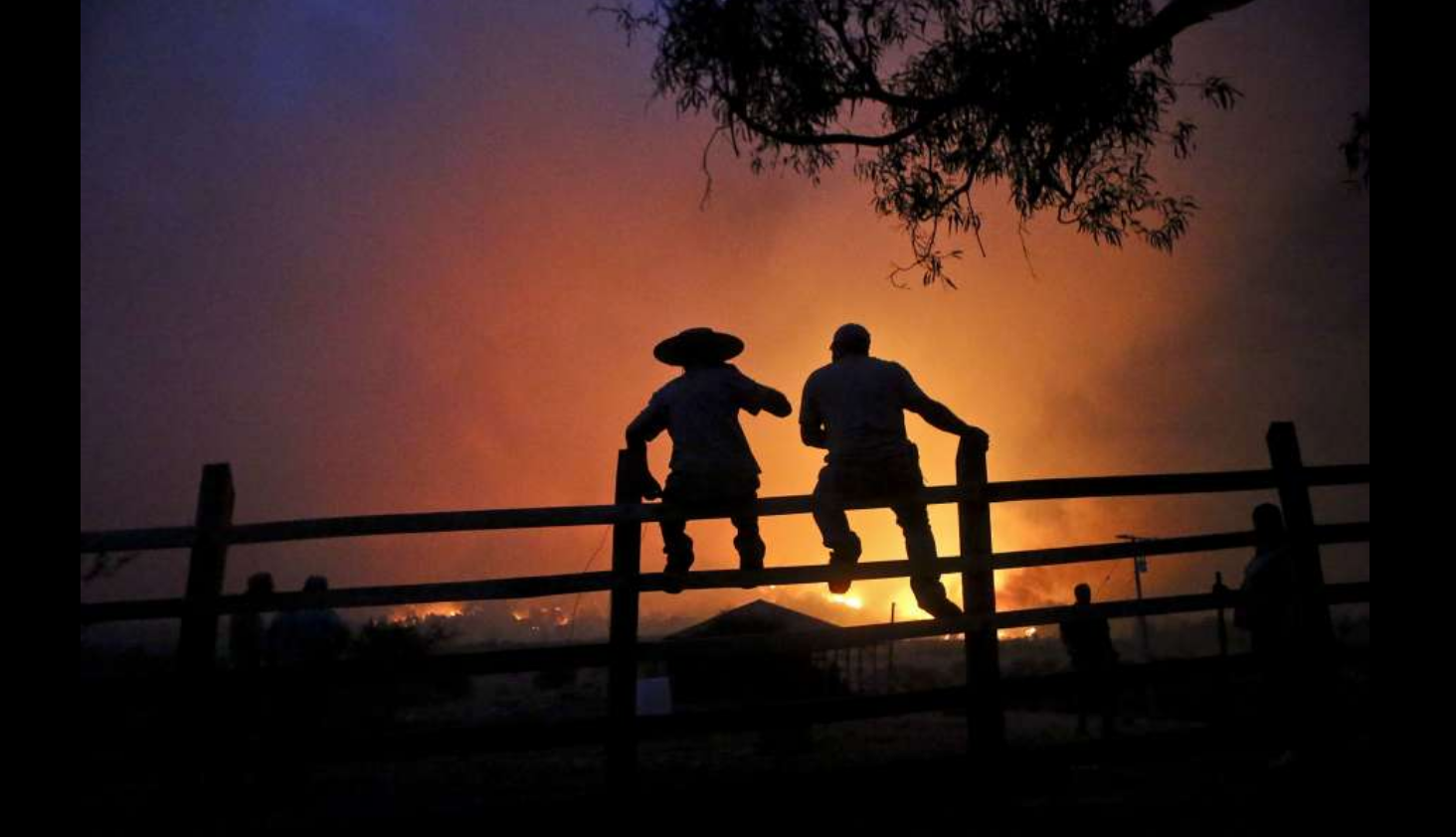After several weeks of ferocious forest fires in Chile, the death toll has risen to 11 people, over 1,600 homes have been destroyed and more than 500,000 hectares affected – including many century-old vineyards in Maule in particular. With the help of emergency services from several other countries and 20,000 firefighters, the fires are finally coming under control and the ‘state of emergency’ was lifted this morning.
As the ash begins to settle, and the new reality for the region kicks in, here are some ways in which you can help:
Volunteer. Not yet! The priority is for emergency services to have access to stop the fires, and eager volunteers are explicitly asked not to travel to the affected regions. However once the fires are completely out, reconstruction and replanting can begin. It will take years to restore the homes, wildlife, vineyards and plantations of the region, so there will be ample volunteering opportunity for years to come. Here is a list of authorised volunteer groups and for those specifically interested in reconstruction of homes and replanting of native forests, register at Broota. If you are already in the area (immediate area, officials are asking for minimum travelling to the region unnecessarily), there is a list of what each district needs (mainly bringing bottled water, food and equipment for the firefighters and evacuated) to the affected regions here.
Donate. There are several crowdfunding campaigns happening for those affected by the fires. Here are some official charities that are also working specifically towards the cause and asking for financial donations (they also accept foreign transfers).
- Techo para Chile (a roof for Chile) is planning to build 500 houses with the money raised over the coming weeks, you can also volunteer to help with the construction by signing up online.
- Psicologos Voluntarios (Volunteer Psychologists) is an organisation offering free emergency counseling services in the regions to help those affected by the fires with some psychological care and emotional support.
- The Red Cross is asking for financial donations as well as emergency supplies and blood donations for emergency aid to the regions affected by fire.
- The College of Veterinarians is accepting donations for a special campaign where they are providing emergency care for the thousands of animals that have been caught in and affected by the fires. Qualified veterinarians in Chile are also encouraged to volunteer.
- Hogar de Cristo has already achieved their fundraising goal to construct 2000 homes and 3 schools, so now they are aiming for a community centre, technology salon and landscaped areas in Hualqui.
Drink Chilean Wine. It might sound too pleasurable to be helpful, but investing in Chilean wine (and all produce from the country) will help bring more funds into the country. The government is estimating that the fires will cost Chile around USD $333 million, so every little helps. With regards to wine, try to look for small producers from Maule who have been the worst affected (Bisogno and Cancha Alegre both lost vineyards). Garage Wines have sold out of their fundraising wine offer, but we will keep you updated of any other wine-related initiatives.
Visit Chile in 2017/18. Tourism is one of the most important activities for Chile, and your visit will help strengthen the local economy. While it isn’t advisable to travel the region right now, another sad outcome of a catastrophe is that people often avoid the affected regions for years to come, which can have a crippling impact on its recovery. Maule, Itata and Bio Bio are three of the wine regions affected, which offer a unique experience in Chile with beautiful old vineyards and quaint villages that have an important tradition of local artisans. Hire a car from Santiago (or fly into Concepcion) and spend a week exploring the wine regions, meeting local producers, and rejuvenating the local economy.
Do you have a fundraising initiative to share? Tell us in the comment box below!
